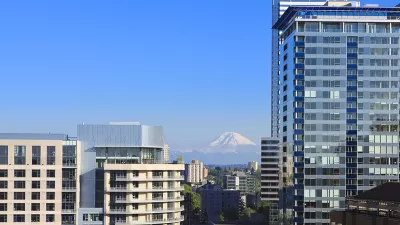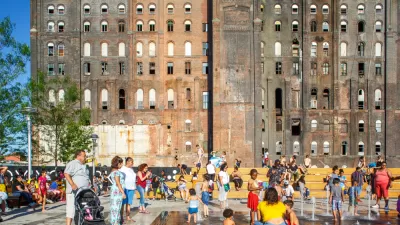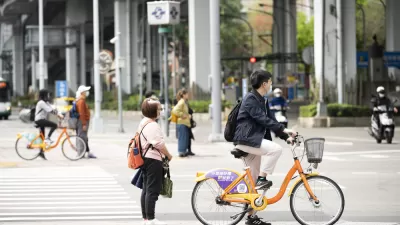The seven largest metros in the nation are teaming up to unify the technologies that are revolutionizing life in the city, Steve Towns reports.
Now more than ever, cities recognize the potential that technology has to transform the experience of daily life. From geographic analyses of crime to smartphone apps that show you where to park, these technologies are evolving at a rapid clip – thanks in large part to governments making data available to the public and letting them run with it.
But as with any new innovation, bleeding-edge developers splinter off into different directions, setting the stage for a sort of VHS-vs.-Betamax divide. But an alliance of the nation's seven largest cities, branded the G7, have been meeting since 2009 to make sense of the revolution. Now, they're preparing a formal project to bring their technological worlds into alignment.
"The unified database means applications developed for one G7 city should work for all," Towns writes. "The group also intends to hold multi-city hackathons that will target common problems and produce shared results" for all cities involved: Boston, Chicago, Los Angeles, New York, Philadelphia, San Francisco, and Seattle.
Jon Walton, Chief Information Officer of the City of San Francisco, notes the potential of making these tools widely available, and leaving the legwork to enterprising developers: "One of the things that surprised some of us was the number of applications that people rush to build once you make this data public. That's a real boon to the city because I don't have to spend taxpayer dollars to create them."
FULL STORY: Cities Share Data, Software Applications

Alabama: Trump Terminates Settlements for Black Communities Harmed By Raw Sewage
Trump deemed the landmark civil rights agreement “illegal DEI and environmental justice policy.”

Planetizen Federal Action Tracker
A weekly monitor of how Trump’s orders and actions are impacting planners and planning in America.

The 120 Year Old Tiny Home Villages That Sheltered San Francisco’s Earthquake Refugees
More than a century ago, San Francisco mobilized to house thousands of residents displaced by the 1906 earthquake. Could their strategy offer a model for the present?

LA’s Tree Emergency Goes Beyond Vandalism
After a vandal destroyed dozens of downtown LA trees, Mayor Karen Bass vowed to replace them. Days later, she slashed the city’s tree budget.

Sacramento Leads Nation With Bus-Mounted Bike Lane Enforcement Cameras
The city is the first to use its bus-mounted traffic enforcement system to cite drivers who park or drive in bike lanes.

Seattle Voters Approve Social Housing Referendum
Voters approved a corporate tax to fund the city’s housing authority despite an opposition campaign funded by Amazon and Microsoft.
Urban Design for Planners 1: Software Tools
This six-course series explores essential urban design concepts using open source software and equips planners with the tools they need to participate fully in the urban design process.
Planning for Universal Design
Learn the tools for implementing Universal Design in planning regulations.
Ada County Highway District
Clanton & Associates, Inc.
Jessamine County Fiscal Court
Institute for Housing and Urban Development Studies (IHS)
City of Grandview
Harvard GSD Executive Education
Toledo-Lucas County Plan Commissions
Salt Lake City
NYU Wagner Graduate School of Public Service





























